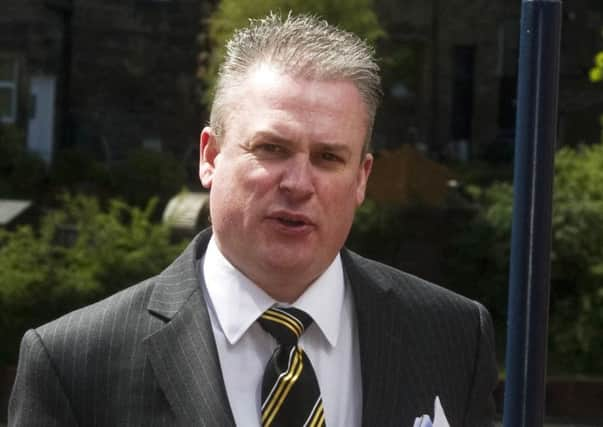Livingston win £200k court battle against ex-director


Gerard Nixon sued for the return of cash he had loaned to the bottom-placed Championship side.
But a judge ruled against Mr Nixon’s bid to secure repayment of a total of £215,367.48 following a hearing at the Court of Session in Edinburgh.
Advertisement
Hide AdAdvertisement
Hide AdLord Tyre said: “I hold that the pursuer (Mr Nixon) has failed to prove that he is entitled to repayment on demand of the sums loaned to LFC by him or by companies under his control.”
Mr Nixon, also of Livingston, was part of a group who successfully bid for the club after it went into administration in 2009 because of debts owed to West Lothian Council.
The majority of the club’s board later voted to remove him in 2013.
The businessman, a Livingston fan, ran a painting and decorating business.
Lord Tyre said Mr Nixon’s trading companies have not been financially successful and he was disqualified from being a company director last year.
In the action, he contended that the money he loaned the club was repayable on demand in the absence of any contrary agreement.
Livingston claimed that Mr Nixon, along with other investors, agreed in 2010 that the loans would not be repayable until it was able to make them, which it is not.
The judge said that after hearing evidence in the case, he was satisfied that an agreement was reached in September 2010 that loans made by four investors, including Mr Nixon, were not to be repayable on demand but only when Livingston could afford to pay them.
Advertisement
Hide AdAdvertisement
Hide AdLord Tyre said: “The concept of making a loan on the basis that it is not repayable unless and until the borrower can afford to repay, which might be regarded, in certain contexts as uncommercial and therefore improbable, seems to me to be much less improbable where the borrower is a company operating a football club.”
He said that like many who are willing to put money into Scottish clubs the shareholders in the present case were “first and foremost football enthusiasts with a desire to participate in the control of a club.”
Lord Tyre said: “It is not inherently unlikely that they would agree not to demand withdrawal of their contribution unless and until the company operating the club was in a sufficiently sound financial position to afford to repay it.
“That is particularly likely to be true with regard to LFC in 2009 when the company was in administration and the club had been relegated to the bottom tier of the Scottish football league with consequently bleak financial prospects.”
Lord Tyre added that according to his own evidence, Mr Nixon’s primary motivation was his support for the club and his desire to put something back into the town of Livingston.
The club did not make any comment on the ruling.